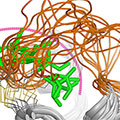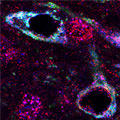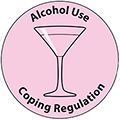Featured Paper of the Month – July 2020
Published in Neuropsychopharmacology by Keeley, Robin J; Hsu, Li-Ming; Brynildsen, Julia K; Lu, Hanbing; Yang, Yihong; Stein, Elliot A
Developing brain-based biomarkers to assess drug dependence, including nicotine dependence, are essential to assess and improve the current, marginally effective, treatments. In humans, using brain-based resting state functional connectivity, we have previously identified a circuit between the dorsal anterior cingulate cortex(ACC) and the striatum whose connectivity decreased with increasing nicotine dependence severity. This circuit was unaffected by acute nicotine administration, suggesting a trait marker of nicotine addiction. However, whether this trait circuit dysregulation is predispositional or resultant from nicotine dependence remained unclear…










